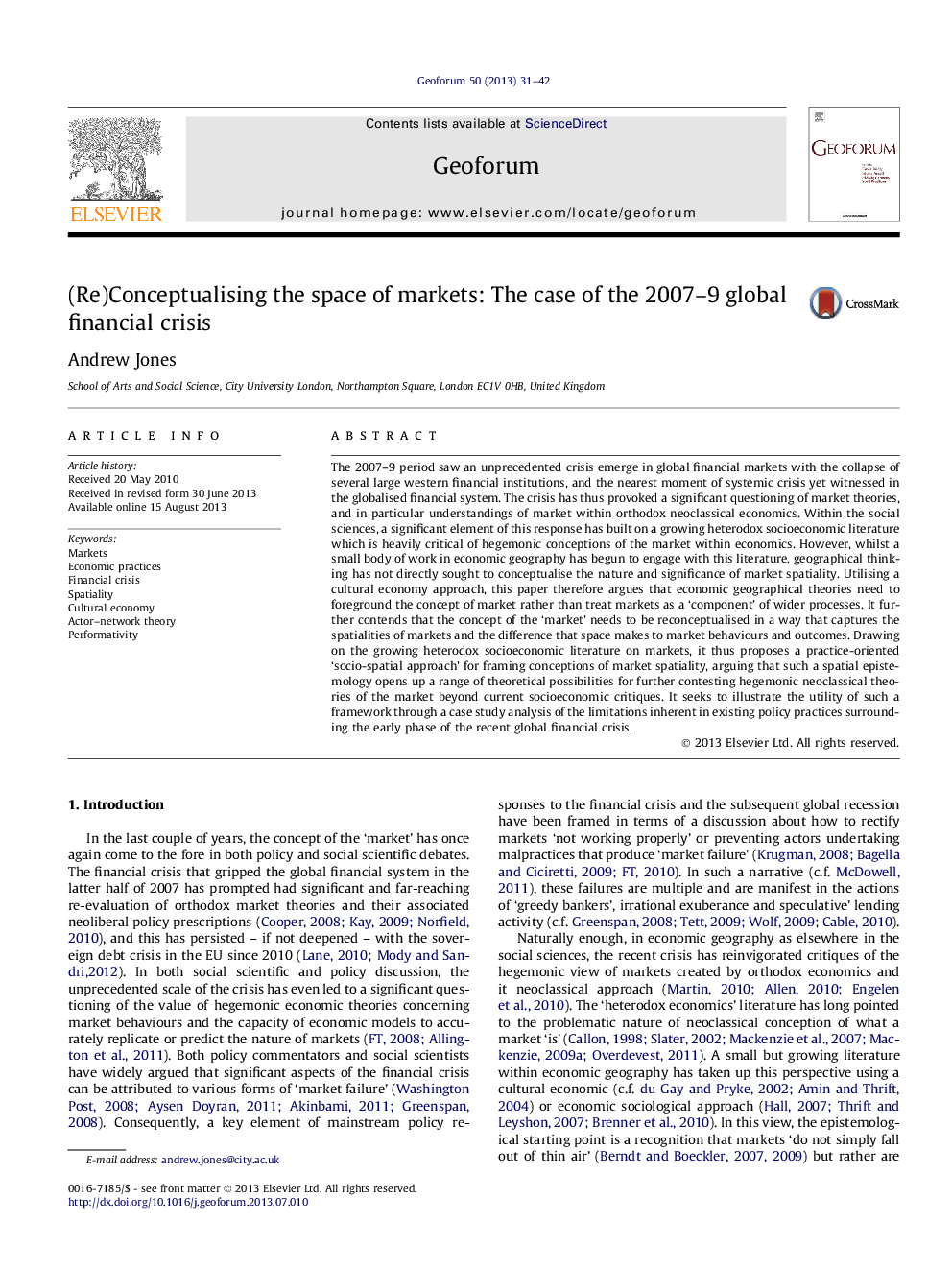| Article ID | Journal | Published Year | Pages | File Type |
|---|---|---|---|---|
| 5074117 | Geoforum | 2013 | 12 Pages |
Abstract
The 2007-9 period saw an unprecedented crisis emerge in global financial markets with the collapse of several large western financial institutions, and the nearest moment of systemic crisis yet witnessed in the globalised financial system. The crisis has thus provoked a significant questioning of market theories, and in particular understandings of market within orthodox neoclassical economics. Within the social sciences, a significant element of this response has built on a growing heterodox socioeconomic literature which is heavily critical of hegemonic conceptions of the market within economics. However, whilst a small body of work in economic geography has begun to engage with this literature, geographical thinking has not directly sought to conceptualise the nature and significance of market spatiality. Utilising a cultural economy approach, this paper therefore argues that economic geographical theories need to foreground the concept of market rather than treat markets as a 'component' of wider processes. It further contends that the concept of the 'market' needs to be reconceptualised in a way that captures the spatialities of markets and the difference that space makes to market behaviours and outcomes. Drawing on the growing heterodox socioeconomic literature on markets, it thus proposes a practice-oriented 'socio-spatial approach' for framing conceptions of market spatiality, arguing that such a spatial epistemology opens up a range of theoretical possibilities for further contesting hegemonic neoclassical theories of the market beyond current socioeconomic critiques. It seeks to illustrate the utility of such a framework through a case study analysis of the limitations inherent in existing policy practices surrounding the early phase of the recent global financial crisis.
Related Topics
Social Sciences and Humanities
Economics, Econometrics and Finance
Economics and Econometrics
Authors
Andrew Jones,
